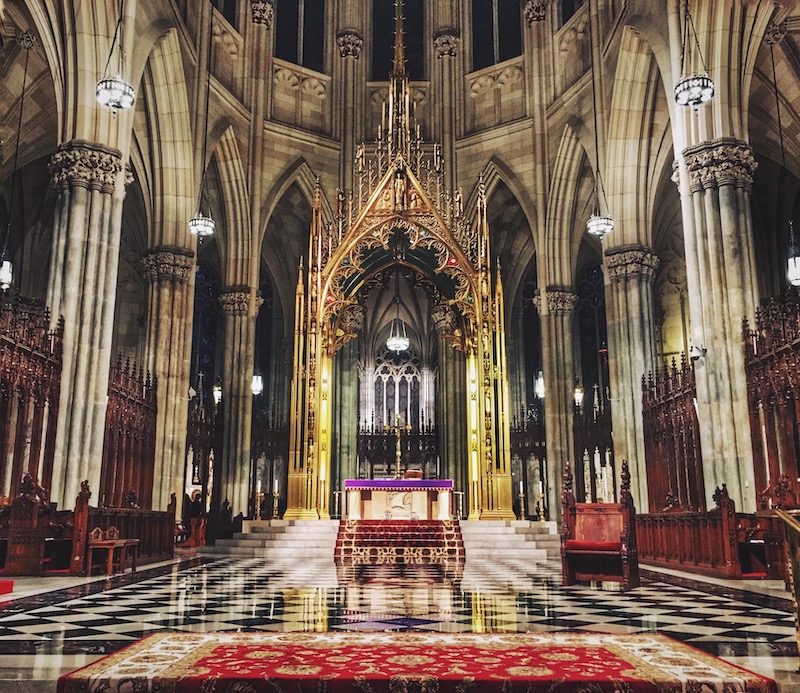“A vocation that could make sense of the hopes and dreams of life.”
As graduation season fast approaches, this is the hope of many soon-to-be college graduates, including myself, as we venture into our professional lives and careers.
But along with this goal come a multitude of questions regarding vocation. What does it mean to live in authentic community with others? How does my faith influence the vocation I choose and the daily responsibilities that come with it? What–if anything–am I responsible for doing about the injustice I see in my own city and around the world? And in a society that says true justice is a naïve fantasy and truth is relative, how can I maintain a lifelong commitment to faithfully honoring God, serving others, and seeking justice through my vocation?
 In his book “Visions of Vocation: Common Grace for the Common Good,” Steven Garber, founder and principal of The Washington Institute for Faith, Vocation & Culture, explores these very questions, offering wisdom borne out of a lifetime of mentoring and discipling students, young professionals, and some of the world’s most influential justice-seekers.
In his book “Visions of Vocation: Common Grace for the Common Good,” Steven Garber, founder and principal of The Washington Institute for Faith, Vocation & Culture, explores these very questions, offering wisdom borne out of a lifetime of mentoring and discipling students, young professionals, and some of the world’s most influential justice-seekers.
At the heart of Garber’s understanding of vocation is the assertion that “we are responsible, for love’s sake, for the way the world is and ought to be.” Our vocation is not merely a means by which we gain our own personal fulfillment or material prosperity. Rather, “we share a common vocation to care not only for our own flourishing, but for the flourishing of the world.”
Vocation holds together the tension of “what is” and “what ought to be”—seeing and understanding the reality of the world in which we live, with all of its brokenness and beauty, but also striving forward to what ought to be, the full flourishing of God’s good creation. We understand that we cannot achieve perfect justice, but we can “make peace with proximate justice,” working steadily toward what can be rather than settling for what is.
In the lives of Christians, this understanding of vocation is lived out by “people who see themselves implicated in the way the world is and ought to be.” Garber writes:
People who have vocations are in imitation of the vocation of God: knowing the worst about the world, and still loving the world. They are people who learn to live in the tension of life, living with what is and longing for what will be.
I can think of no better example of one who embodied this vision of vocation than Dietrich Bonhoeffer, a brilliant theologian, church leader, and political dissident living in Nazi Germany. As a German citizen and Christian, he understood himself to be implicated in the injustices committed by German leaders against the Jews and other marginalized peoples.
Consequently, Bonhoeffer chose not flee to the safety of the United States. Instead, he faithfully discipled young Germans to follow Jesus earnestly in the face of political oppression and spiritual coldness, sought to unite the global church against the evils of the Nazi regime, and even participated in a plot to assassinate Adolf Hitler.
[pq]Our vocation is not merely a means by which we gain our own personal fulfillment or material prosperity.[/pq]
History reveals that Bonhoeffer was not successful in these efforts to oppose the Nazis, and these choices ultimately cost him his life. But Bonhoeffer did leave behind a legacy of godliness in his vocation as a religious and political leader, commending the Gospel through his “faithful presence” in his vocation. Knowing the worst about his country and its leaders, Bonhoeffer nonetheless chose to love them and work for their redemption.
While our lives look much different than Bonhoeffer’s, we still face the same vocational choices. Will we live proximately, intentionally dwelling in community in our unique contexts? Are we willing to accept that we are implicated in the way the world turns out? And in an age when nearly endless information is at our fingertips, what will we do with what we know?
Indeed, “Visions of Vocations” reminds us that:
To learn to see oneself implicated is the most difficult task of all… Duty only takes us so far; at some point we must delight in what is ours, in the relationships and responsibilities that are ours… It is in and through our vocations, committed to the common good—with gladness and singleness of heart—where this becomes real.



